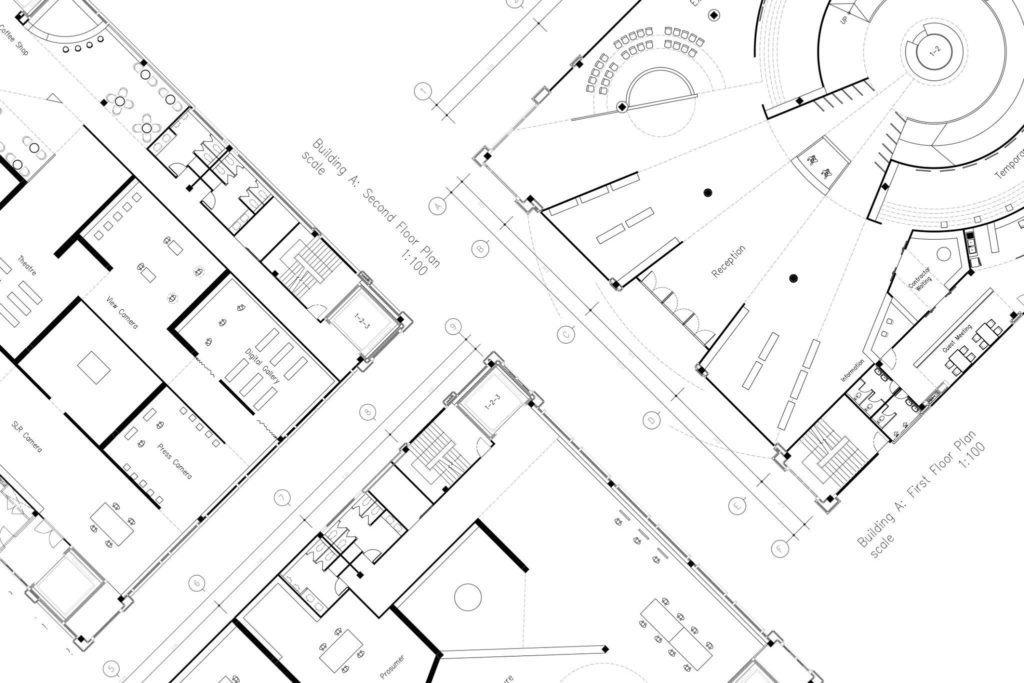
Completing an architecture thesis in college is both a challenging and fulfilling experience. It requires intense research, dedication, and commitment to ensure that a successful outcome is achieved. This blog post of MIDAS will provide helpful tips to make sure that the process of completing an architecture thesis is as smooth and efficient as possible. With the right guidance, students can effectively prepare themselves for the research and writing process while ensuring they remain on track to complete their thesis in time. It’s important to stay organized and on schedule, and to communicate regularly with your advisor to ens+ure that you are meeting all of the requirements for the thesis and that your project is on track.
To effectively complete an architecture thesis in college, consider the following steps:
- Develop a clear research question or thesis statement that guides your project.
- Conduct thorough research on the architecture thesis topic, including a literature review of relevant sources.
- Create an outline or plan for the project, including a schedule for completing different aspects of the work.
- Create detailed design drawings, models, and renderings to present your ideas and concepts.
- Write a comprehensive report or dissertation that explains your research, design process, and final project.
- Practice presenting and defending your thesis in front of a panel of experts or your thesis committee.
- Review and edit your work before submitting it.
- Seek feedback and guidance from your thesis advisor and other professors throughout the process.
Thesis Basics
Before embarking on the journey of completing an architecture thesis, it is important to understand the basic requirements for success. Firstly, students should select an architecture thesis topic that will be interesting enough to generate enthusiasm in the thesis project. Next, they must develop an appropriate timeline that allows sufficient time for research and writing while also ensuring all deadlines are met. Additionally, it is essential to dedicate regular time each week towards working on the thesis; this will keep motivation high and help ensure progress is being made throughout its completion. Furthermore, students should always consider seeking advice from their supervisor or peers when needed as this can prove invaluable during difficult moments in the process.
Research & Planning
Completing a successful architecture thesis can be daunting – the amount of research and planning required to craft an award-winning piece is immense. But with the right tools and strategies, any student can make the process easier and more rewarding. More than just a document that must be written and submitted, an architecture thesis requires creative thinking, careful consideration of design issues, and thorough research.
Architecture students should start by researching their chosen architectural thesis topic in depth: what existing scholarship exists? What theories apply? What have others written about this architecture thesis topic in the past? Asking these questions helps direct the focus of your project. Additionally, it’s important to create a timeline for completion that outlines tasks such as due dates for drafts or meetings with advisors. By setting yourself realistic goals throughout the process you will stay on track while also avoiding stress down the line.
Design Strategies
The thesis process is one of the most important elements of completing a degree in architecture. It is an opportunity to explore and research specific topics related to the field, as well as develop skills and strategies that will be invaluable in future practice. For architecture students looking to ensure successful completion of their thesis, there are certain design strategies that should be employed.
Organization is key when it comes to tackling such a large project. Having a clear structure laid out from the beginning allows for much smoother progress throughout the duration of the project. A timeline should be created with realistic deadlines, taking into account any other commitments or tasks that may occur during this time period. Additionally, developing a network of advisors and faculty members can help provide guidance with difficult decisions or technical problems faced along the way.

Writing Process
Writing a successful architecture thesis can be an overwhelming process. It takes discipline, focus, and hard work to complete such a large project. To ensure the best possible outcome for an architecture thesis, it is important to follow a well-defined writing process that allows for the efficient completion of the project.
The first step in any successful writing process is to clearly define your objectives and research questions. This will help you stay on track throughout your work and make sure that all of your efforts are focused on answering those questions or achieving those goals. Once these have been identified, you can begin outlining your ideas and researching information related to them. As you gather more knowledge on these topics, try to organize it into logical categories so it can be used as evidence when writing argumentative points in your paper later on.
Time Management
Writing a successful architecture thesis is no small feat. To complete the project on time and within budget, it’s essential to have strong time management skills. The good news is that anyone can learn how to effectively manage their time while completing their architecture thesis.
The key to success lies in breaking down the task into smaller chunks and setting realistic deadlines for each stage of the process. Start by creating a timeline that outlines when each step should be completed, such as researching literature, designing data collection methods, collecting data and analysing results. Once you have an idea of when each task needs to be completed, make sure to also add buffers between tasks so you don’t feel overwhelmed or overextend yourself trying to finish everything at once.
Peer Support
Peer support is a key factor in successful architecture thesis completion. Not only does it serve as a means of emotional support, but peers can also provide tangible feedback and advice about the project itself. A great way for students to get peer support is by forming an accountability group with other architecture students who are all working on completing their own thesis projects. This type of group encourages each student to stay on track while they offer mutual help and advice to one another.
The power of peer support should not be underestimated when it comes to completing a successful architecture thesis project. Having someone else that understands the scope of the project can help further refine ideas, bring clarity to complexity, and keep individuals motivated throughout the entire process. Furthermore, working together with peers allows knowledge and experience to be shared, making it easier for everyone involved in the group’s success.
In conclusion, the successful completion of an architectural thesis project requires hard work, dedication, and focus. It is a complex task that requires the student to demonstrate their knowledge and skills, while also challenging them to think creatively. However, with the right guidance and support from their professor or mentor, students can make it through this process. Ultimately, completing an architectural thesis is a rewarding experience for both students and instructors alike; it provides an opportunity for creativity and allows students to demonstrate their abilities in a unique way.
ArJ.M.Abdul Kadar Architect-Professor-Writer-Director






